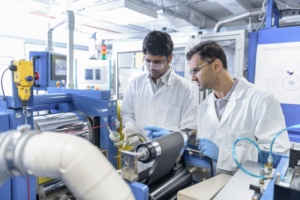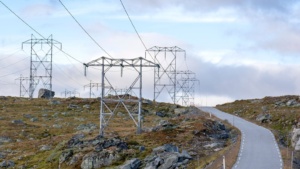The ACT project ELEGANCY is ready to present its findings on CCS and hydrogen in a webinar series. The series starts off on 18 June with a presentation of key findings and recommendations and it includes high-level participation from the European Commission and Forschungzentrum Jülich. The following webinars will present project results in more detail:
18 June: Hydrogen and CCS – one of the cornerstones of the European Green Deal
19 June: Unlocking opportunities and addressing challenges for large-scale hydrogen provision in Germany, Switzerland, United Kingdom, the Netherlands and Norway
22 June: Hydrogen supply and CO2 injection and storage
23 June: Business case development and hydrogen-CCS chain tool
The webinars are open for everyone interested.
Update: Find the slides from the webinars here.
Webinar 1: Hydrogen and CCS – one of the cornerstones of the European Green Deal
18 June 2020 at 10:00—12:00 CEST
Programme
- ELEGANCY overview and key messages (Svend T. Munkejord, Chief Scientist, SINTEF)
- The role of hydrogen in accomplishing Europe’s Green Deal (Diederik Samsom, Head of Cabinet of Frans Timmermans, European Commission)
- The role of hydrogen and CCS to achieve Europe’s climate goals – case studies in Germany, Switzerland, United Kingdom, Netherlands and Norway (Gunhild A. Reigstad, Research Manager, SINTEF)
- The German hydrogen strategy (Wolfgang Marquardt, Chairman of the Board of Directors, Forschungszentrum Jülich)
- Perspectives on the hydrogen economy as essential element of a low carbon world (Nilay Shah, Professor, Imperial College London)
- Q&A
- Wrap-up and conclusions (Nils A. Røkke, Executive Vice President, SINTEF)
Webinar 2: ELEGANCY – Unlocking opportunities and addressing challenges for large-scale hydrogen provision in Germany, Switzerland, United Kingdom, the Netherlands and Norway
19 June 2020 at 10:30—12:15 and 13:30—14:45 CEST
Description
The potential for large-scale hydrogen provision in UK, Netherlands, Germany, Switzerland and Norway have been investigated through dedicated case studies in the ELEGANCY project. They include
- Decarbonization of the Rotterdam area
- Hydrogen and CCS to reduce emissions from domestic heating and industrial clusters, H21 North of England and Grangemouth case studies, UK
- A strategy for implementation of hydrogen and CCS in Germany
- The role of hydrogen in decarbonizing Switzerland
- Opportunities for a Norwegian hydrogen value chain and synergies with the Norwegian large-scale CCS deployment
The webinar comprises speakers from BGS, SCCER, TNO, University of Utrecht, Ruhr-University Bochum and SINTEF and will present the results and impact of each of the case studies.
Further we will share insights on how the tools of ELEGANCY – the hydrogen and CCS infrastructure development optimization tool and the business case development toolkit – can be used in hydrogen and CCS projects.
Webinar 3: Hydrogen supply and CO2 injection and storage
22 June 2020 at 10:00—11:30 and 12:30—14:00 CEST
Low-carbon hydrogen supply with CCS
10:00—11:30
- Advanced Property Models for Processing, Transport and Storage of Gas Mixtures Containing H2 (Roland Span, RUB)
- Optimization of Sorption Enhanced WGS for use with Basic Oxygen Furnace Gas from the steel plant (Jean Pierre Pieterse, TNO)
- Biomass to hydrogen with CCS: can we go negative? (Cristina Antonini, ETH)
- Demonstration of VPSA for CO2-H2 co-production (Anne Streb, ETH)
- Life Cycle Analysis of low-carbon H2 supply with CCS (Karin Treyer, PSI)
ELEGANCY – CO2 transport, injection and storage
12:30—14:00
ELEGANCY – Facilitating the engineering of transport and storage systems for CO2 stemming from hydrogen production by…
- Improved prediction of the properties of CO2 mixed with hydrogen
- Providing a realistic description of CO2 pipeline and injection operations including startup and shutdown
- Validated experimental and modelling approach to allow safe and effective CO2 storage in underground rocks
- Understanding the hydrogen-stimulated microbial response to CO2 injection in underground rocks
- Combined laboratory and field experiments with advanced modelling
The work in ELEGANCY WP2 will be summed up by speakers from SINTEF, BGS, Imperial College London, Ruhr-University Bochum and SCCER / ETHZ:
- The influence of thermodynamic properties on CO2 storage in saline aquifers (Martin Trusler, ICL)
- Towards an accurate and consistent description of thermodynamic properties of mixtures of CO2 with brines (Roland Span, RUB)
- Depressurization of CO2-N2 and CO2-He in a tube (Svend T. Munkejord, SINTEF)
- Laboratory studies to understand the controls on flow and transport for CO2 storage (Sam Krevor and Ronny Pini, ICL)
- Mt. Terri experiment: Fault trapping (Antonio Pio Rinaldi and Alba Zappone, SCCER)
- Microbial activity in response to H2 in a CO2-rich stream (Simon Gregory, BGS)
Webinar 4: Business case development and hydrogen-CCS chain tool
23 June 2020 at 10:00—11:30 and 12:30—14:00 CEST
ELEGANCY – Business case development for H2-CCS integrated chains
10:00—11:30
This webinar will present the ELEGANCY business model selection and business case assessment framework, methodology and tools. This framework comprises workflows and optional elements for application to the delivery of integrated H2-CCS chains in the case study countries and elsewhere in different European settings. Subjects to be presented include:
- Assessing the business context, including the legal/regulatory, macro-economic, market and fiscal background to a H2-CCS development proposition;
- Assessing the policy issues, business risks and incentive mechanisms impacting investment for the various actors in a H2-CCS value chain;
- Processes and tools to develop business models and commercial structures including risk mitigation strategies;
- A business case assessment methodology, framework and templates;
- Examples of the application of the methodology and tools to the UK’s H21 Roadmap for phased investment in H2-CCS infrastructure to cost effectively decarbonise residential heating in the north of England.
The work in ELEGANCY WP3 will be presented by speakers from Sustainable Decisions Ltd (UK), First Climate AG (Switzerland) and the Faculty of Law of the University of Oslo (Norway).
H2-CCS chain tool and evaluation methodologies for integrated chains
12:30—14:00
ELEGANCY has studied the evaluation of integrated H2-CCS chains with respect to technological and economic efficiency, operability and environmental impact. To this end, we have
- Developed an open-source systems modelling framework with a steady-state design mode and a dynamic operational mode.
- Developed multiscale models and an integrated modelling approach for the chain components.
- Applied the methodology in conjunction with case studies with respect to (i) the potential time evolution of the system and (ii) integrated assessments of proposed designs.
The work will be presented as follows:
- Overview and rationale of the work package; modelling framework (Nilay Shah, ICL)
- Model reduction approach and rationale (Julian Straus, SINTEF)
- Integrated design optimisation and LCA – method development and application study (Nixon Sunny, ICL and Karin Treyer, PSI)
- Overview of operational modelling, including local thermodynamic models (Edward Graham, ICL)











Comments
No comments yet. Be the first to comment!